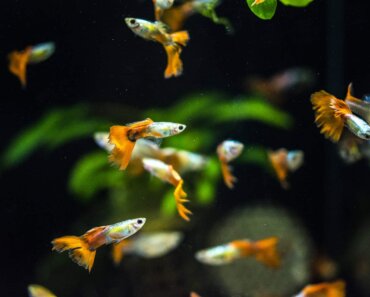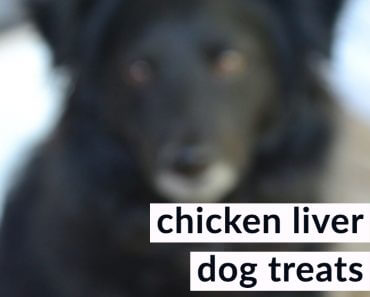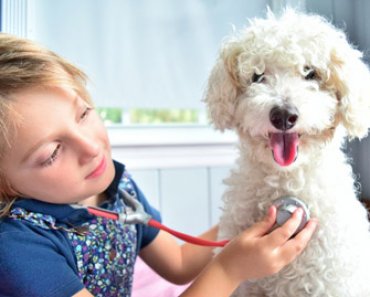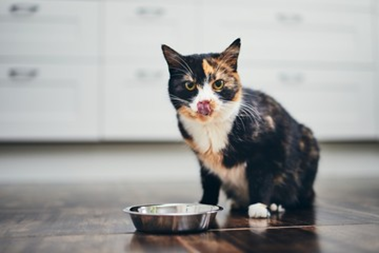
Our cats are important parts of our families, and it makes
sense that we want to do everything we can to give them the best lives
possible. As cat have unique dietary requirements compared
to other common household pets, a well-rounded diet is commonly emphasized by
experts as the most important way to positively contribute to their continued
health. Still, many pet parents find it difficult to fully assess the quality
of their cat’s diet, in part because of the sheer number of options for cat
food on the market and all the different information that’s available. Here,
Freshpet discusses a few ways that we can give our cats the best diet possible
based on their needs.
Evaluate
Protein Levels of Their Food
Cats are obligate carnivores and
need more protein than some other common pets because their metabolism quickly
breaks down amino acids. To ensure that your cat is getting all of the protein
that they require via their cat food, it is a great idea to choose options that
you know have an efficient percentage of protein. This can be accomplished by
selecting a premium, high-protein cat food.
Avoid Harmful Fillers and Additives
While some pet parents are particularly vigilant about making
sure that the cat food they purchase is devoid of harmful additives, many
simply do not know what to look out for, and the list of what to avoid is
always growing. Generally, it is a good idea to avoid chemical preservatives
that can be potentially carcinogenic, including butylated hydroxyanisole (BHA),
butylated hydroxytoluene (BHT), and ethoxyquin. Certain carbohydrate fillers
can also cause health issues and, in some cases, do not have any benefit for
maintaining your cat’s overall health. Corn, soy, and grain-meals are often cited
as fillers to avoid when perusing cat food options.
Choose the Right Food for Their Age and Needs
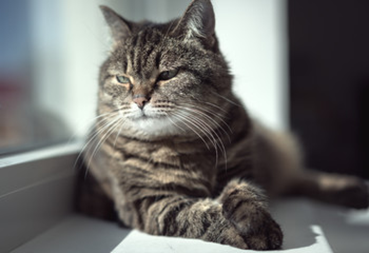
Cats’ nutritional needs can differ
at different stages of their lives. For example, a growing kitten will likely
require a diet that is higher in protein, vitamins, minerals, and amino acids,
whereas a senior cat may require less protein if they have certain health
issues. Always choose a cat food that is formulated for your cat’s age and
specific nutritional needs. If there is any confusion, a trusted veterinarian
can provide insight on your choices specifically based on what your cat needs.
Keep Your
Cat Well Hydrated
Cats
typically do not drink much water on their own accord, a trait that stems from
their ancestors that lived in the desert. Because of this, pet parents commonly
choose fresh cat food options that are high in moisture content to ensure their
cats get the water they require without needing to drink most of it. Cats that
are dehydrated can develop a range of symptoms such as lethargy, depression,
elevated heart rate, and loss of appetite. Dehydrated cats are also much more
susceptible to urinary issues and bladder stone development. Remember that cats
prefer moving water, so the addition of a bowl with a fountain could increase
the amount of water that your cat drinks and supplement their hydration.
Make
Changes Gradually
In our haste to introduce a cat food to our pets that we
believe will be healthier for them, we sometimes forget that it is best to make
gradual rather than sudden changes to their diets. This is because a sudden
change in diet can cause an upset stomach that can quickly negate the benefits
of the switch. Remember that the gradual change does not need to be difficult,
and by simply mixing some of the new cat food in with the old during
dinnertime, you can ease them into the change until they are completely
switched. Some experts believe that this can be done over the period of a week
but may take as long as ten days if your cat is older or particularly set in
their ways. Be patient!
Speak
With your Vet
If you are planning on changing certain aspects of your
cat’s diet, it is always a good idea to speak with your vet during your routine
visits to get confirmation that you are on the right track. After all, cats’
dietary needs can vary from one cat to another and a vet will have a complete
idea of what your cat may need to maintain their health. They can often speak
from experience to inform you on what to look out for and what to avoid as you
evaluate all your options. Your veterinarian can also assess your cat after you
have made a change to ensure that their diet is continuing to have a positive
impact.

